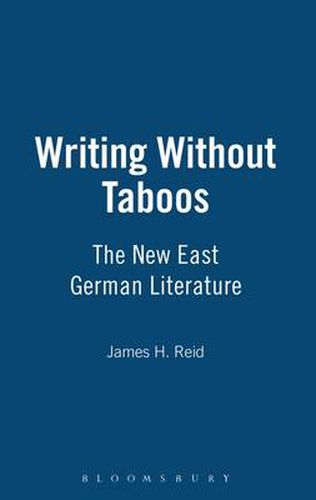Readings Newsletter
Become a Readings Member to make your shopping experience even easier.
Sign in or sign up for free!
You’re not far away from qualifying for FREE standard shipping within Australia
You’ve qualified for FREE standard shipping within Australia
The cart is loading…






This book assesses the achievements of East German writers such as Christa Wolf, Heiner Muller, Volker Braun, Ulrich Plenzdorf, Irmtraud Morgner and Christopher Hein, and aims to identify the major themes of East German literature. The book examines the formal innovations which have become common in recent years and attempts to justify the claim that there is a specifically East German literature, distinct from that to be found in the West. Concentrating on fiction rather than poetry or drama, although examples from both of these genres are taken into account where appropriate, the author traces the roots of the GDR’s new literature in developments which were already taking place in the latter half of the 1960s. The individual chapters are to a large extent autonomous, viewing the GDR’s literature from eight different angles. The first examines the extent to which the GDR has evolved a literary identity different from that of West Germany; the second reviews the vicissitudes of cultural policies; the third examines some of the developments in literary forms, in particular the way in which literature itself becomes a theme of literature.
$9.00 standard shipping within Australia
FREE standard shipping within Australia for orders over $100.00
Express & International shipping calculated at checkout
This book assesses the achievements of East German writers such as Christa Wolf, Heiner Muller, Volker Braun, Ulrich Plenzdorf, Irmtraud Morgner and Christopher Hein, and aims to identify the major themes of East German literature. The book examines the formal innovations which have become common in recent years and attempts to justify the claim that there is a specifically East German literature, distinct from that to be found in the West. Concentrating on fiction rather than poetry or drama, although examples from both of these genres are taken into account where appropriate, the author traces the roots of the GDR’s new literature in developments which were already taking place in the latter half of the 1960s. The individual chapters are to a large extent autonomous, viewing the GDR’s literature from eight different angles. The first examines the extent to which the GDR has evolved a literary identity different from that of West Germany; the second reviews the vicissitudes of cultural policies; the third examines some of the developments in literary forms, in particular the way in which literature itself becomes a theme of literature.